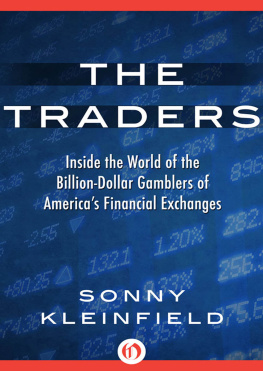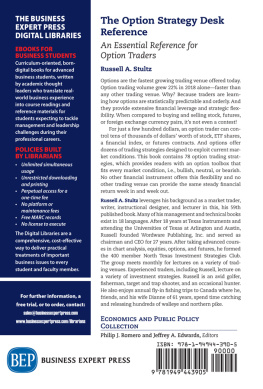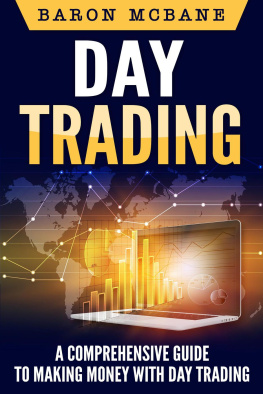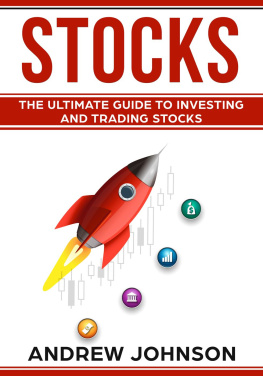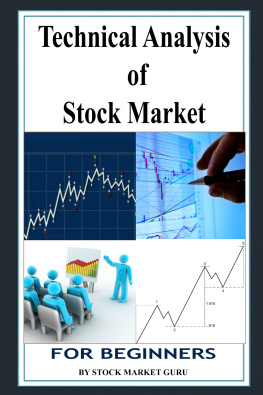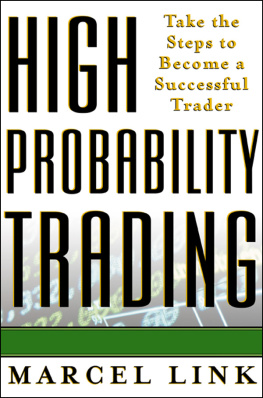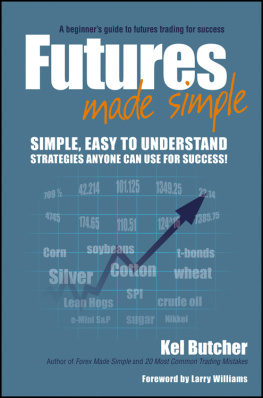The Traders
Sonny Kleinfield

ONE
Finding space to breathe on the trading floor of the New York Stock Exchange is a continual worry. The floor is a scruffy, disheveled, high-ceilinged labyrinth that has the general appearance of a flea market. By now, a little after eleven A.M. , it is already thrumming with excitement. A staggering crush of people dilly and dally around a maze of horseshoe-shaped kiosks where the major stocks of American industry get traded on a daily basis. Cathode-ray tubes slung above the posts display data and more datathe latest pricesin bright green letters and numbers. People keep staring at the screens as if they were playing video games. Crumpled wads of paper, soft-drink lids, husks of gum, and other detritus litter the grimy wooden floor. There is no room for wastebaskets, so there are none. Smoking is firmly forbidden on the trading floor, since one smoldering butt flipped into the snow of litter might quickly bring trading on Americas mightiest exchange to a sudden standstill. Among other rules are grade-schoollike prohibitions against running and playing radios. Theres already enough noise. Intermittent high-decibel shrieks and howls constantly issue from far reaches of the roomcalls to buy, calls to sell.
Unheeding of this rumpus, a man named Jim Connolly threads through the jam of bodies, his shoulders hunched forward. He steps briskly, then stops and casts an anxious glance at the tape up on the wall, actually a digital readout across which trades whoosh by at the rate of nine hundred characters per minute, a clip determined to be as fast as the human eye can read. He spots something interesting, decides to buy it, then, before shuffling off, vetoes that decision. Hes not sure why. He shrugs and says with a mildly stoic look, I change my mind about twenty times a day. Its the nature of the game. He peers quickly again at the tape, then slinks off merrily into the chattering, fidgeting crowd, secure in the knowledge that he will shortly find something else enticing to buy.
In good years, Connolly makes the kind of six-figure money that would allow him to work in a hushed office with a glorious view of the Manhattan skyline, a thick carpet, and a big desk carved out of mahogany. He could have one of those phones equipped with a maze of buttons. In fact, he enjoys no such niceties. His office is his pocket. If you need to reach him during the day, forget it. He has no phone. Connolly makes his living as a floor trader on the New York Stock Exchange, an occupation in which, on any given day, he might walk off the floor having racked up a small fortune or having blown one. The stock market is a shrine ostensibly consecrated to rounding up capital for companies to use to carry on their businesses. To Connolly, though, it is more like a high-stakes game of chance. Each trading post is like another gaming table, each stock another bet. You wander the floor, trying to decide where to risk your money.
Connolly is a big, husky man with the outward appearance of an English butler. He is forty-five. His light-brown hair is slicked back with hurricane-proof gobs of hair tonic, and he has a neatly coined mustache, which he tugs on every so often as if to make sure its still there. He has a carefree manner, untrammeled enthusiasm, and a well-deserved reputation for garrulity. Like most traders, he also has a cocky assurance about him. This day, he is spiffily dressed in a chalk-striped gray suit and a sober blue tie (in contrast, the myriad brokers who wander the floor executing orders from the public and the big institutions are garbed in soiled, ill-fitting colored smocks that indicate the firms theyre with). Pinned to the left lapel is a rectangular badge embellished with his name and No. 279 (everyone has a number on the floor), as well as green and red stripes, which signify that he is a floor trader. Connolly has seventeen years on the stock-exchange floor under his belt. This is his third year trading exclusively for himself.
As an independent floor trader, Connolly answers to no one. He risks only his own money. He doesnt have to worry about currying favor with customers; he has no customers. He doesnt have to concern himself with exacting performance quotas so that his boss will be impressed; he has no boss. He acts on a pure profit motive and lives by risk alone. Im an independent entrepreneur, Connolly will say when he is asked about his profession. Im a one-man company. Im the factory, Im the workers, Im the whole shebang. Theres only one guy Ive got to please, and youre talking to him.
Much of Connollys day can be described as that of a sort of professional scavenger, since he spends it perambulating around the floor snooping for bargains and pumping people for information that might lead him to bargains. In the course of most days, he buys and sells a bewildering array of stocks, avoiding putting too many irons in the same fires. He is equally comfortable owning an oil stock as he is owning a high-technology issue or an ant-spray concern. If he suspects that theres good money to be made buying into a disposable-crib manufacturer, he wont hesitate to take the plunge. There are 1,558 companies listed on the New York Stock Exchange, and when I ask Connolly how many stocks he trades in, he fishes in his pocket for some slips of paper, scans them quickly, then looks up. This month is, what, five days old? he says. Ive traded Telephone, Atlantic Richfield, Chrysler, Data Terminal Systems, Datapoint, General Electric, IBM, MET, Mohawk Data Sciences, Teledyne (thats a hundred-and-twenty-three-dollar stock, one of the most expensive babies weve got down here; the typical stock goes for about forty bucks), Texaco, and Tosco. This morning, I traded in Amarada Hess. You can add that to the list. All in all, I would say I trade in fifty stocks a month.
As a rule, he rarely holds on to these stockshe likes to call them vehicleslong enough to collect a dividend check. When his best judgment tells him to sell something, he doesnt shilly-shally around but simply washes his hands of it. Two or three days is almost an eternity for Connolly to be in a stock. Holding shares from eleven-thirty to two the same day could be considered long-term by his standards. Sometimes, he discovers two or three minutes after he bought a stock that he committed a boner in making the trade. (Traders call this errant situation being long and wrong.) So he gets rid of it the first chance he has. A trader has to keep churning his money. Whereas a part-time investor can be satisfied to see paper profits pile up, the trader has to convert those paper profits regularly into cash to live on. Basically, traders like Connolly grovel for a tiny profit here, claw for another few bucks there. The returns from the transitory investments add up. As he explains it to me, The economics of the trader are, we trade for very little increments. Eighths, quarters of a point. On an eighth of a dollar, we make money. On an eighth, we make about ten dollars. Thats after clearing costs. The only costs we have are clearing costs and the cost of money. If you trade in the same day, as I usually do, theres no cost of money.
Grasping exactly how Connolly does what he does involves tangling with the inexplicable. As we trundle more or less aimlessly about the floor, struggling to evade being bulldozed by onrushing brokers and clerks, Connolly gives me as best he can a short course in his trading methodology: A lot of traders tend to be group players, looking for the laggard in a group of stocks in the same industry, so that if a group is going down and one stock isnt yet going down, you short that onein other words, sell shares you dont have in the hope of buying them later at a cheaper price. Or else traders tend to be excess traders. I do a lot of excess trading. If any household name, like Telephone or IBM, has some news come out about it, it tends to go up a disproportionate amount or down a disproportionate amount. Say IBM goes up a point. Thats enough, and I will tend to short it. If Telephone goes down a point, Ill buy it. Thats being an excess player. You feel the stock has moved an excess amount because of the publics emotion. If an oil company hits oil, the public overreacts, gets all excited; and the stock goes up. A trader would tend to short it. I mean, if an oil company didnt discover oil, itd be out of business. Its not looking for wheelbarrows or hatpins. So the public tends to overreact. You get the announcement in which a company discloses a fire in one of its plants. Sure, its a negative. But they probably have insurance and all, and so there will be more of a sell-off than there should be by the public. We try to take the emotion out of the game.

